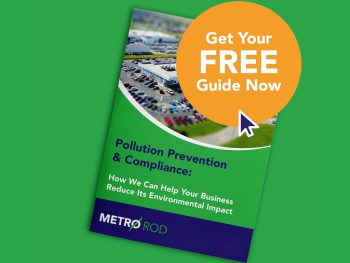Automotive businesses including fleets as well as car dealers feel unable to be more environmentally responsible due to the high costs associated with compliance, as well as the increased pressure on resources.

Nine out of 10 (87%) businesses in the automotive sector see pollution prevention as a priority, according to the new study, but three-quarters (73%) think keeping on top of environmental regulations puts additional pressure on their business. Meanwhile, a further 72% say it’s expensive to remain compliant.
Almost half (48%) said they struggle to understand how to remain compliant with environmental regulations, and 65% say they feel environmental regulation isn’t talked about enough in the industry.
The findings come from drainage services provider Metro Rod, which conducted research with a cross section of people working at management level in England’s automotive sector, to determine how informed the industry is of the role it plays in protecting the environment.
The study also looked at the main obstacles to achieve compliance with environmental regulations; more than half cited the cost of putting proactive measures in place (58%) while more than two-fifths said a lack of communication from water authorities or the Environment Agency as to what is required of them (42%) means they’re unsure of their obligations. And more than a third referred to the amount of time and resource it requires to put compliant measures in place (37%).
Additional challenges included a lack of willingness from senior members of the business to prioritise compliance (35%), while a quarter said their business would benefit from the support of a specialist drainage provider (26%).
The research also found many are unaware of the consequences they might face should they ever breach environmental regulations. While more than a third of respondents (37%) said they have received penalties related to non-compliance with environmental regulations, only one in 10 (12%) knew that the maximum penalty for non-compliance with environmental legislation is an unlimited fine, that the event is classed as a criminal office, and that the business owner could face a prison sentence.
Metro Rod has shared the findings in Pollution Prevention & Compliance: How We Can Help Your Business Reduce Its Environmental Impact and says the data highlights the need for the automotive industry to make significant improvements to minimise its environmental impact.
Christopher Nelson, senior technical support manager at Metro Rod, elaborated: “When it comes to the automotive industry, there is regulation around the disposal of end-of-life vehicles, and around emissions from vehicles on the road. However, there is no targeted advice in relation to discharging trade effluent and wastewater into the sewer network, despite this being a by-product of the everyday operations of fleets, dealerships and more. As such, businesses in this sector must take responsibility of their environmental footprint themselves, developing processes based on very little structured guidance.
“As part of the research, we found that there is a widespread lack of understanding as to the different techniques and methods which can be put in place to minimise pollution incidents, and without further education about those steps, and uptake from all the businesses who would benefit from them, the industry is at risk of harming the environment significantly.
“In our new report, we offer advice and best practices on how automotive businesses can become more environmentally responsible, arming them with the knowledge they need to improve their processes and avoid punishment from the Environment Agency, but also contribute to making the industry more sustainable and environmentally friendly for years to come.”
The Metro Rod report looks at practical strategies to improve operations while minimising environmental impact, and key steps to drive long-term sustainability in the automotive sector. It also includes a ready-to-use pollution prevention action plan for your business.
The pollution awareness white paper is online here.

